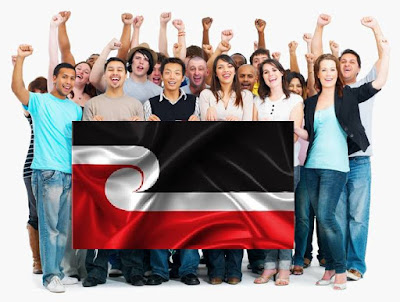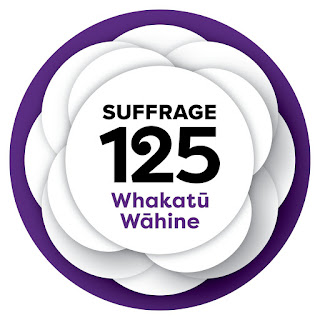Radical Masculinities?
One was in the context of being part of butch femme dynamics where I've been challenged a number of times by femmes, on my masculine privilege, assumptions, misogyny, and ways of working and communicating.
Another is upon starting to take testosterone, needing to think about how my body and its readings will be eventually absorbed more solidly into gendered dynamics, particularly masculine positionings. This is in contrast to now, when people read me as male, it's a young pre/pubescant male, until I begin to speak; or I'm read as a queer female/dyke.
So wanting to look at my behaviour now as a butch, and eventually when I will be read as a man, both readings within a vague but powerful category of “masculinity”.
When I think about masculinities and what that is, I get a bit confused. Though we probably all have ideas of what it is, when it happens to us, or around us, it becomes difficult to pinpoint exactly what makes it masculine. I spose that's maybe because it has dominant readings (and teachings), subcultural readings, as well as being intrinsically raced, classed, embodied and regulated through citizenship, culture and other forms of powers. Learning (or being force fed) gender begins so early in life, from people needing to know the gender (rather than simply sex) of a baby so they can know whether to say “ooh what a strong kick you have” or “aren't you a pretty thing” to the squishy bald creature in the pram.
When we look at things, behaviours and symbols at first glance might be deemed masculine or feminine, upon a second look with the lenses of time and culture, masculinity and femininity appears more like a paint or dye that gets put onto certain things. The act of “putting on” is what makes something masculine or feminine read, to a particular culture. So for example, little boys playing with toy trucks is seen as a masculine behaviour. 200 years ago, there probably weren't any toy trucks, but I'm sure little boys still did things classed as masculine. And little girls might play with trucks today, but that will probably not be read and categorised at feminine behaviour simply because a girl child is doing it. With things like “being strong and providing” and “getting up to investigate a sound in the night”, both often read as masculine behaviour, upon examination of course, fall apart.
So maybe we could look at it like identity, where it's how it reads, and how it calls to be read. That it is given meaning, and then gives meaning. A little bit like the notion that Gods only have the power that we (mortals) give them through worship, it's a common comic book theme.... Gender exists and can be read, because we create it and read it.
I'm not from a train of theory that sees gender as the root of gender oppression, and therefore if it is just a construct, we should just ditch it. It is a construct, which does not mean that constructed things aren't important, held close, valuable, visceral and even fun. Language is constructed, as are ways of family, and so is sport, art, literature, music etc etc. All are sites of power, and often places of oppression and discrimination, but getting rid of them won't ensure world peace. Same goes with gender. There is gender oppression because of oppression, not because of gender and masculinity.
But gendered oppression is often manifested, perpetuated and expressed through gender, particularly through masculinities, given the current gendered set up at present. Hence my desire for wanting to live a masculinity that doesn't keep rolling out the same old crap.
Which brings me to what radical might mean. I realised then, I don't really know what it means, but weirdly I have an idea even though I don't actually know what it means. It conjures a bunch of stuff for me, from far left politics, separatist essentialist lesbian feminists, to coloured and third world movements, and people not content with same-same-but-different government reforms. My trusty wiki search, reveals a bunch of contexts and definitions, and confirms my vague idea of radical coming from a latin term meaning “from the roots”. So applied to social change or whatever we want to call it, paints a path of fundamental change, of change from the roots, not mere tinkering and pruning.
For me (and again I don't know where I've gotton this idea from) it's a deviation from responsibility and rights orbiting, serving, and being reduced to the individual. For example, living a “just” life (whatever that means) is more than simply abiding by laws and paying your parking fines, it would entail examining the injustices within society and the “justice” system, whether those inequalities affected us or not.
So when thinking in terms of radical masculinities, it's more than “not hitting your girlfriend”, more than “providing for your family”, and more than “being a good dad”. For me it would entail taking wider responsibility past your own individual masculinity (whatever that is and might look like), in a constructive and meaningful way. For me it means acknowledging the powers, albeit mediated and changed through race, class etc, of being masculine, even though I identify as genderqueer, that can and are defaultly given to me whether I'm happy or comfortable with it or not.
With that giant intro and disclaimer, what I have now, are no answers, but a bunch of questions. Maybe the “answer” lies in the striving, the asking, and the unstableness.
What are Radical Masculinities and some possibilities?
We don't express and read and interact in a void or vacuum. Readings are created and read with histories and contexts. How do we converse with masculine inheritances and legacy? Do we? Will we? What are the costs of not doing so?
How do we look at masculine shame, responsibility and pride, in relation with colonial cultures, sexism, racism, class and other power structures?
How do we negotiate masculine privileges, benefits and marginality?
How are different masculinities raced/classed?
What situations/contexts/spaces disable/enable my masculinity?
What masculine pride/shame/responsibilities do I feel in association with my race/ethnicity/class/the way my body functions (mental, physical, interdependence)?
What colour is my masculinity?
What culture is my masculinity?
What class is my masculinity?
How is colonial culture/dominant culture played out/embodied/expressed through (my) masculinity?
What are my responsibilities around masculinity? Internal/external/relational. Feminists/femininity/ Structured gendered oppression/privileges.
How do we negotiate masculine privileges/benefits surrounding race/class/archetypes/hierarchies?
What are some expectations/pressures of masculinity from ourselves/others?
How does our masculinities/and “mainstream” masculinities relate to fear/vulnerability/shame/fragility?
How do masculinities go about NOT being complacent or “doing” sexist behaviour/misogyny?
Differences between “queer” masc and “straight” masc?
Differences between ”cis” masc and “trans” masc”?
What do non-sexist chivalry's look like?
Another question, which could be an overarching question that unpins all these questions, is “what is my stake in this?”. Or more casually and bluntly, “Why should I care, why do I care?”.
Should we fail to, or not bother to examine this question, our expressions and actions may become or remain unmeaningful, unlocated and ungrounded, rear up as paternalistic, benevolent and reeking of jesus-saviour syndrome, and may simply entrench and perpetuate, even create more gendered oppression.
So for me, I ask my myself these questions, seeking to interrogate and examine my somewhat amorphous to me, but sometimes clear to others, masculinities. And here are some of my answers. For now.
The need for radical masculinities stems from hearing too many stories of sexual harassment, sexual violence and disempowerment, and feeling helpless and useless ease the shame and the pain, and feeling too small hold the anger.
It's in that look I know all too well, because I give it often enough, of “sigh, you just really do not get it”. In that look of “you're just like the others, you disappoint me because I expected more”. And in that hurt look, someone gives you when you've said something daft, laughed at something offensive, and you know you can't take back. It's seeing mistrust, guardedness and anger and knowing it's not misplaced.
Gendered oppression and dominant masculinities limit the fullness of my gendered expression and being, masculine and otherwise. They damage my emotional, sexual, spiritual, mental and physical relationships with women/femmes/feminine people. Suspicion, wariness, can't-be-botherness and sometimes fear, our constant coupled companions. They diminish my interactions and experiences of myself, people I share masculinity with, and everyone else in the gender sphere and outside of it. And it robs us all of the full wholeness of what we could be having together.
A bit cheesy but there you have it... Maybe there is something to masculinity embracing the cheese?.. Who knows.


Another question: what is the significance of the pharmaceutical and biomedical industry to radical masculinities/femiminities/transgenderisms? This is NOT to say there is a co-option of radical gender politics but, like what the pill helped enable for western feminism, there are complex correlations between the two. I'm thinking of Haraway's cyborg figure here...
ReplyDeleteYeah totes, primo question. Do you mind if I add that to the other questions if I end up running another discussion?
ReplyDeleteReal intriguing and pressing tensions and negotiations of privilege and positioning surrounding “choice”, dependance, [addiction?] identity, access etc.
Interesting thoughts and questions.
ReplyDeletesomething I've been wondering about lately...
There's a term that I and lots of people i know use to explain ways in which trans-guys and folks on the transmasculine spectrum behave 'like women'... it's cause we've been 'socialised female'.
I wonder how much i have been.
For instance there was a lot of pressure on me growing up to be emotionally nurturing (read:self-sacrificial) and responsive to other family members, guests, etc, but on the other hand people rarely commented on my looks (a lot less than on my sister's anyway) and i didn't have to do many chores, because i was an 'intellectual.' That bit of privilege seems very resonant with the way older sons were treated in the upwardly mobile, upper working class, scottish tradition of my grandma's family.
I would be interested to hear about other folks experiences.
pip